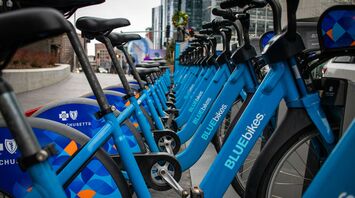U.S. Bikeshare Usage Surges in April 2024, Highlighting Shifts in Urban Travel

In a remarkable shift in urban mobility, U.S. bikeshare programs have experienced a significant rise in usage during April 2024, reflecting a growing trend in sustainable travel. Among the six largest bikeshare systems in the country, New York City and Jersey City's CitiBike led the charge with a record 2.89 million trips, marking an increase from 2.81 million in April 2023.
This year-over-year growth is not isolated to the East Coast. Other major cities, including San Francisco and Chicago, have also reported increases in their bikeshare ridership, with Bay Wheels and Divvy respectively witnessing rises in their monthly trip counts. Washington D.C.’s Capital Bikeshare and Boston’s Blue Bikes similarly showed slight increases in usage, indicating a broader national trend towards docked bikeshare systems.
The aggregate data from these cities represents a 3.5% increase in bikeshare trips compared to the same period last year. This growth in ridership highlights a significant shift in how urban residents and visitors are choosing to navigate city landscapes, increasingly opting for greener, more efficient, and health-conscious modes of transportation.
The appeal of bikeshare programs extends beyond mere convenience. They offer an environmentally friendly alternative to traditional motor vehicle commutes, helping to reduce traffic congestion and lower carbon emissions in dense metropolitan areas. Moreover, these systems provide an accessible and flexible option for short trips around the city, which is particularly appealing in a post-pandemic world where many seek safer, open-air forms of transportation.
The increase in ridership also underscores the importance of sustainable infrastructure and city planning. As more people turn to bikeshare systems, cities are prompted to expand and improve cycling paths and bike-friendly policies, fostering an environment where cycling can flourish as a primary mode of urban transport.
As we move further into 2024, the trends suggest that bikeshare systems will continue to play a pivotal role in shaping urban mobility. The ongoing commitment of cities to support and expand these programs not only enhances urban livability but also aligns with broader goals of sustainability and public health. This rising trend in bikeshare usage is a clear signal that city residents and planners are recognizing the value of integrating more eco-friendly transport options into the urban fabric.



















